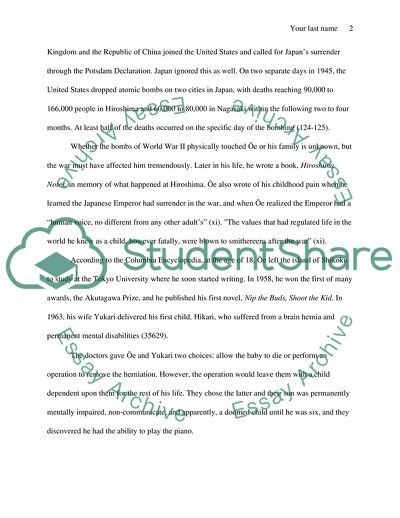Cite this document
(Analysis of A Personal Matter by Kenzaburo Oe Book Report/Review - 1, n.d.)
Analysis of A Personal Matter by Kenzaburo Oe Book Report/Review - 1. https://studentshare.org/psychology/1756273-kenzaburo-oes-a-personal-matter
Analysis of A Personal Matter by Kenzaburo Oe Book Report/Review - 1. https://studentshare.org/psychology/1756273-kenzaburo-oes-a-personal-matter
(Analysis of A Personal Matter by Kenzaburo Oe Book Report/Review - 1)
Analysis of A Personal Matter by Kenzaburo Oe Book Report/Review - 1. https://studentshare.org/psychology/1756273-kenzaburo-oes-a-personal-matter.
Analysis of A Personal Matter by Kenzaburo Oe Book Report/Review - 1. https://studentshare.org/psychology/1756273-kenzaburo-oes-a-personal-matter.
“Analysis of A Personal Matter by Kenzaburo Oe Book Report/Review - 1”. https://studentshare.org/psychology/1756273-kenzaburo-oes-a-personal-matter.


